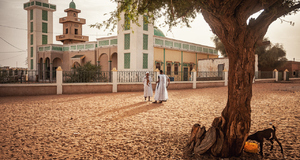Theories of Nationalism: A Brief Comparison of Realist and Constructivist Ideas of the Nation
By
2016, Vol. 8 No. 10 | pg. 1/1
KEYWORDS:
In the immense field of scholarly work regarding defining nationhood, a raging debate exists between the conservative view of the nation and the constructivist view. A clear and definitive change in the conception of the ‘realness’ of the nation can be seen throughout the historiographical study of nationalism. The conception of the nation has shifted dramatically, from the proto-jingoist conservatism of the ‘primordial nation’ of Johann Gottlieb Fichte and Johann Gottfried Herder and the German nationalist school of thought they represent to the constructivist ‘imagined community’ of Benedict Anderson and the ‘congruence principle’ of Ernest Gellner to the militant anti-nationalism of Thongchai Winichakul’s notion of the artificed ‘geo-body’ and the Marxist ‘bottom-up’ nation of Eric Hobsbawm. This essay will attempt to explain the underlying philosophies that exist within the post-primordial and anti-essentialist school of liberal thought and chart the contributions made to the constructivist perception of the nation by focusing on Anderson, Gellner, Winichakul, and Hobsbawm as well as provide appropriate historical background to place these views of the nation in social and intellectual context. Benedict Anderson, one of the foremost proponents of the constructivist view of nationalism, defines the nation as a fabrication, a bond between people that did not actually exist prior to its own recognition. He states that, “It is an imagined community - and imagined as both inherently limited and sovereign”1. Anderson believes that the nation is imagined because members of this nation don’t know most of their compatriots but still have a communal image; it is built based on recognition of commonality, not the commonality itself. "It is an imagined community—and imagined as both inherently limited and sovereign" The conception of the nation is inherently limited and, in many ways, defined by this limit because all nations, even ones with large populations, still have finite demarcations beyond which other nations can be found. These nations and imagined communities are sovereign because the concept was born when Enlightenment destroyed thoughts of divinely-ordained legitimacy and hierarchy.2 These nations are defined as a community because the nation is conceived as a deep fraternity between people and the nation is based on this fraternity, not the shared characteristics that may have created this fraternity in the first place.Benedict Anderson believes that both primordialist thinking and Marxist constructivist philosophy cannot endure in the face of the fundamental paradoxes of defining the nation, which he believes to be the objectivity of historical treatment versus subjective antiquity for nationalists and jingoists, the existence of formal universality among all nations versus the uniqueness of each nation’s manifestation, and the political power of a nation versus its philosophical poverty.3 For Anderson, primordialist thinking regarding the nation fails to stand up to the objectivity of historical treatment while Marxist thinking regarding the conception of the nation doesn’t take into account the philosophical poverty of the nation. Anderson theorised within the context of a dominant constructivist narrative on the topic of nationalism and with an academic focus on Southeast Asia and Indonesia in particular. This colors his observations because the formation of southeast asian nations was, in large part, independent of racial or ethnic homogeneousness. Industry and print language played an important role, which would make it easy for Anderson to fall into the trap of his own paradox of national definition, the existence of formal universality among all nations versus the uniqueness of each nation’s manifestation. His opinion is influenced by his chosen specialty and case study as well as by the existing constructivist sentiments at the time. Ernest Gellner put forth the idea that the nation is only a socially conceived “construct,” an artificially created entity with the possibility of continued existence contingent upon the continuation of the perpetuation of the concept by the nation’s elites.4 He believes that nations and nationalism are not somehow revealed by historical events, but rather that they are fabricated concepts. He states that,
To Gellner, nationalism comes from the fabrication of recognition, not any shared pre-existing characteristics.This is in direct conflict with the pre-constructivist idea that nations already existed before their more tangible manifestation. Gellner is a postmodern thinker, preferring an explanation that is a result of self-determination, as opposed to a set and unchanging identity. While Gellner is at odds with the idea of the pre-existing nations of the primordial school of thought, his theories are in no way wholly agreeable to traditional constructivist thought regarding nationalism. His skepticism of the realness of the nation does not undermine the validity of or need for the nation as a construct. Gellner stipulates that nationalism is a completely necessary mechanism in the process of modernization because he believes that industrialism requires that social and political boundaries become congruent. The nation is not natural or pre-existing, but it is necessary for uniting state with culture. Gellner also states that nations are not formed through ideology or proto-jingoism, but through its necessity for the existence of a modern and industrialized society. While Gellner attempts to disabuse people of the notion of a “perennial” or mythologized nation, he also holds with the atypical (for a national constructivist) idea that the nation is necessary and legitimate.6 He believes that nations are conceived and perpetuated in large part by societal elites, but does not agree with the widespread constructivist notion that nations are deliberately created to empower the self-serving elites. To Gellner, homogenization of culture is a societal necessity, not a calculated power grab. The creation of a modern civil society and the transition from an agrarian lifestyle to an industrial one requires cultural standardization that can only be achieved by fabricating a nation. This conflicts with the traditional constructivist view that civil societies can exist outside the bounds of a nation. Ernest Gellner’s conception of the nation through a semi-constructivist lens was in large part due to the historical and social context in which he wrote. A part of the massive Western constructivist machine that was building momentum during the decades in which Gellner first published, he was disabused of any primordialist sentiments he may have felt towards his home country of Czechoslovakia by the violent and anti-Semitic takeover of communism. He was heavily influenced by the social constructivist movement during the spread of socialism and its subsequent collapse and his work must be viewed in this political context. His views are also influenced by his personal experiences; as a migrant, he has an outsider’s perspective on nationalism. Thongchai Winichakul subscribes to the constructivist philosophy of the nation set forth by Anderson and Gellner, that there is nothing inherent or pre-existing about the nation. He agrees with the idea of the nation as an imagined community, one defined by its recognition of itself and not any tangible bond.7 Thongchai’s contribution to the field of nationalism academia lies in his interpretation of the nation through what he terms the “geo-body,” the delineation and formation of a nation’s territory.8 Thongchai states that nationalism is dependent on the finite nature of a nation demarcated by its borders. These borders define what is of the nation and what is not and identifies the outermost limits of national identity. The study of nationhood through the lens of territory is vital in explaining the formation of the nation through political geography as the concept of nation cannot be separated from that of sovereignty and the value of territory. Territoriality is a vital component in the creation of the collective ‘self’ of the nation and the geo-body is, in and of itself, just another construct artificially created through cartography and discourses of geographical representation.9 Thongchai’s discourse on the falseness of both the nation and its territory exists in a blatantly anti-nationalist and anti-jingoist historical context. As a student, Thongchai was imprisoned by Thai nationalist forces in a paramilitary assault on a student protest.10 His conception of the nation as a result is actually more anti-primordialist than traditional constructivism as it has the added element of an artificed an unreal territory and geography. His interpretation of nationalism is affected by the Thai history of nationalism and his experiences as a dissenter. Eric Hobsbawm was a proponent of a distinctly Marxist, anti-primordial view of the nation. He wrote that “any sufficiently large body of people whose members regard themselves as members of a 'nation', will be treated as such.” 11 This is a deeply constructivist view of nationalism and puts forth the idea that pre-existing and homogenous characteristics of a people group in no way define a nation; rather, it is the recognition of a bond, a fabrication and an artificed entity, that legitimizes the nation. He rejects the idea that nations exist because of any existing bond between peoples. He states that,
The primordial conception of a mythologized nation as something inherent in a people group is absurd. Hobsbawm believes that, nations are fundamentally “situated at the point of intersection of politics, technology and social transformation.” 13 They only exist within the context of social and economic development and evolve because of this development and the mass standardization of practices, nations are not a pre-existing bond between a people group. Hobsbawm states that, in order to understand the nation, it must be analyzed from a bottom-up perspective. This perspective reveals that national ideology at the top is not reflective of national ideology of the working class, that national identity can be secondary to other forms of self-identification, and that the conception of a nation can and does change, sometimes quite rapidly. Hobsbawm’s special brand of Marxist-constructivist thought precludes the existence of objective nationalism or a nationalist historian, as nationalist thought is fundamentally unsound. For Hobsbawm, the idea of a pre-existing nation is a myth and those who subscribe to that school of thought are unfit for scholarly activities. His Marxist bottom-up view of the nation portrays the nation and nationalism as lacking uniformity in society and being susceptible to change. In political context, Hobsbawm formulated his theories directly before and during the Cold War and was a part of the liberal and constructivist wave of thought regarding nations. His Marxist philosophies colored his perception of the working class as having an agency of identity independent from the power of the elites. Hobsbawm worked under the cloud of “a lesser McCarthyism” existing in the United Kingdom during the Cold War and his Marxist theories were considered radical enough to preclude him from receiving offers of university positions.14 These four scholars and contributors to the constructivist school of thought on the conception of the nation were influenced by a number of social, political, and historiographical factors that affected their respective contributions to the academic field. The dominance of the modern constructivist school resulted in an importance academic liberal bias against the primordialist notion of the nation and nationhood. The specificity of the case studies used to generate theories of nationalism also served as a bias, due to the difficulty inherent in a universal theory of defining the nation derived from unique and specific cases. Outsider perspectives of migrant and transnational scholars also influenced their work. Personal experiences with nationalist and primordialist forces served to further push scholars to the constructivist camp. Additionally, nationalist and anti-nationalist political climates in the scholars’ home countries influenced their level of antagonism towards the mythologizing of the nation and the conservative primordialist school of thought. The constructivist school of thought is in no way a uniform reaction to the jingoist nationalism of primordialist thinkers. Constructivism is a blanketed philosophy encompassing all scholarly thought on nationalism derived from the premise that the nation is not mythical nor is it a pre-existing, God-given bond between men. It is a construct, a fabricated entity whose existence is a result of its own recognition and not any ethnic, racial, or ideological commonality existing in a people group. It is a shifting phenomenon and the result of social thought. Benedict Anderson changed the way the debate between primordialism and constructivism was framed by introducing his three paradoxes of nation defining and then navigating those paradoxes with his notion of an imagined, limited, and sovereign community. Gellner introduced a new type of constructivist theory by upholding the inherently artificial nature of the nation and the creation of the nation by recognition and not existing commonality, while still asserting the legitimacy and even necessity of the nation in the modern industrial world. Thongchai expanded the idea of artificiality as a component of the nation by applying it to what is arguably the most tangible aspect of the nation, its borders and territory, driving the debate even further away from the conservative primordial explanation. Hobsbawm attempted to rework methodological practices of constructivist academics by viewing nationhood from the bottom-up and redefining the nation as a concept lacking in uniformity throughout the classes. These academics have helped to grow the constructivist school of thought from blanketed liberal reactionism in response to rationalized jingoism to an expansion on the thinking surrounding what constitutes a nation, how a nation is formed, and what that means in the context of modern nation-states. ReferencesAnderson, Benedict R. O'G. Imagined Communities: Reflections on the Origin and Spread of Nationalism. London: Verso, 1991. Print. Elliott, Gregory. Hobsbawm: History and Politics. London: Pluto, 2010. Print. "Ernest Gellner’s Nations and Nationalism: A Book Critique." Ernest Gellner’s Nations and Nationalism: A Book Critique. N.p., n.d. Web. 14 May 2015. Genovese, Eugene. "From the Archives: Eugene Genovese on Eric Hobsbawm." N.p., n.d. Web. 14 May 2015. "The Nationalism Project: Homepage." The Nationalism Project: Homepage. N.p., n.d. Web. 14 May 2015. "Thongchai Winichakul." Thongchai Winichakul, Ind. Mgab. N.p., n.d. Web. 14 May 2015. "Unlikely Reds Under the Bed." The Independent. Independent Digital News and Media, n.d. Web. 14 May 2015. Walicki, Andrzej. "Ernest Gellner and the "Constructivist" Theory of Nation." JSTOR. N.p., n.d. Web. 14 May 2015. Winichakul, Thongchai. Siam Mapped: A History of the Geo-body of a Nation. Honolulu: U of Hawaii, 1994. Print. Endnotes
Suggested Reading from Inquiries Journal
Inquiries Journal provides undergraduate and graduate students around the world a platform for the wide dissemination of academic work over a range of core disciplines. Representing the work of students from hundreds of institutions around the globe, Inquiries Journal's large database of academic articles is completely free. Learn more | Blog | Submit Latest in Political Science |


















